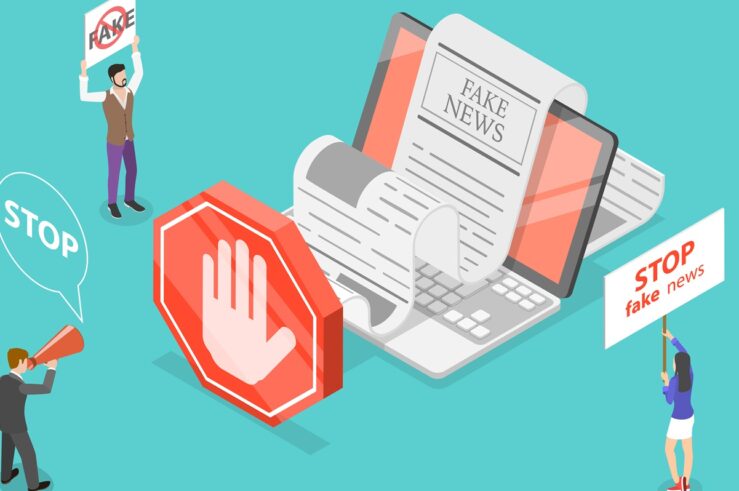Showing results for: “digital markets act”
A Positive Agenda for Digital-Competition Enforcement
Reasonable people may disagree about their merits, but digital-competition regulations are now the law of the land in many jurisdictions, including the EU and the UK. Policymakers in those jurisdictions will thus need to successfully navigate heretofore uncharted waters in order to implement these regulations reasonably. In recent comments that we submitted to the UK’s ... A Positive Agenda for Digital-Competition Enforcement
The WGA’s Misguided Fears: Unpacking the Myths of Media Consolidation in the Streaming Era
While last year’s labor disputes between the Writers Guild of America (WGA) and the Screen Actors Guild (SAG-AFTRA), on the one hand, and Hollywood’s major movie and television studios, on the other, have been settled for months now, lingering questions remain about competitive conditions in the industry. In a recent submission to the California Law ... The WGA’s Misguided Fears: Unpacking the Myths of Media Consolidation in the Streaming Era
Will the Courts Allow the FCC to Execute One More Title II Flip Flop?
The U.S. Supreme Court’s recent decision in Loper Bright v. Raimondo may have added a new wrinkle to the decades-long fight over whether broadband internet-access services should be classified as “telecommunications services” under Title II of the Communications Act. The Federal Communications Commission (FCC) has flip-flopped multiple times over the years on this hotly debated ... Will the Courts Allow the FCC to Execute One More Title II Flip Flop?
Reports of the Current FTC’s Intellectual Integrity Have Been Greatly Exaggerated
The Federal Trade Commission (FTC) has released its long-awaited report on pharmacy benefit managers (PBMs) as an “interim staff report.” And it’s yet another staff report that doesn’t name the relevant staff. On the one hand, it does contain some useful information on industry developments. On the other, it’s just not very good—at all. With ... Reports of the Current FTC’s Intellectual Integrity Have Been Greatly Exaggerated
Rounding Out the Roundup
In yesterday’s Agencies Roundup, I discussed the likely fate of the Federal Trade Commission’s (FTC) new rule banning most noncompete agreements, read through the lens of the Supreme Court’s Loper Bright decision. I thought the rule infirm to begin with—a somewhat foolish swing for the fences on a regulation that the FTC couldn’t possibly enforce. ... Rounding Out the Roundup
How This Supreme Court Term Might Affect the FCC’s Digital-Discrimination Rule
The recently completed U.S. Supreme Court session appears to have upended the administrative state in some pretty fundamental ways. While Loper Bright’s overruling of Chevron attracted the most headlines and hand-wringing, Jarkesy will have far-reaching effects across both the executive and judicial branches. Even seemingly “small” matters such as Ohio v. EPA and Corner Post ... How This Supreme Court Term Might Affect the FCC’s Digital-Discrimination Rule
What Do the NetChoice Cases Mean for Online Speech?
With the release of the U.S. Supreme Court’s NetChoice opinion (along with some other boring case people seem to want to talk about), opinions for the October 2023 term appear to be complete. After discussing what Murthy v. Missouri means for online speech, it only feels right to discuss the other big social-media case of ... What Do the NetChoice Cases Mean for Online Speech?
After Loper Bright, FTC Awaits Its Turn At-Bat
In an Agencies Roundup post several weeks ago, I revisited the Federal Trade Commission’s (FTC) newly adopted—and not-yet-effective—rule barring the use of noncompete agreements across much of the U.S. economy. It was not my first such post (my ninth, if I’ve counted correctly, and if readers will forgo armchair diagnoses of monomania). The last time ... After Loper Bright, FTC Awaits Its Turn At-Bat
FCC’s Digital-Discrimination Rules: Bridging the Divide or a Bridge Too Far?
The Federal Communications Commission’s (FCC) recently enacted rules to prevent so-called “digital discrimination” in broadband access are facing a significant legal challenge in the 8th U.S. Circuit Court of Appeals. Earlier this week, the U.S. Justice Department and the FCC submitted their brief on the matter. Now that the parties have made their “opening arguments” ... FCC’s Digital-Discrimination Rules: Bridging the Divide or a Bridge Too Far?
The View from the United Kingdom: A TOTM Q&A with John Fingleton
What is the UK doing in the field of digital-market regulation, and what do you think it is achieving? There are probably four areas to consider. The first is that the UK’s jurisdiction on mergers increased with Brexit. The UK is not subject to the same turnover threshold as under European law, and this enables ... The View from the United Kingdom: A TOTM Q&A with John Fingleton
What Does Murthy v Missouri Mean for Online Speech?
After a lot of anticipation from Supreme Court watchers, the Murthy v. Missouri opinion has finally been released. As the oral argument suggested, standing was the issue for the Court, who in a 6-3 decision written by Justice Amy Coney Barrett ruled that none of the plaintiffs had standing, due to a lack of traceability ... What Does Murthy v Missouri Mean for Online Speech?
FTC Alumni Response to FTC/DOJ RFI on Serial Acquisitions
As former antitrust enforcers and alumni of the Federal Trade Commission (FTC), we are pleased to submit these comments to the FTC and U.S. Justice Department’s (DOJ) Antitrust Division (DOJ) in response to your Request for Information on Corporate Consolidation Through Serial Acquisitions and Roll-Up Strategies (RFI). We have devoted significant portions of our careers ... FTC Alumni Response to FTC/DOJ RFI on Serial Acquisitions
















